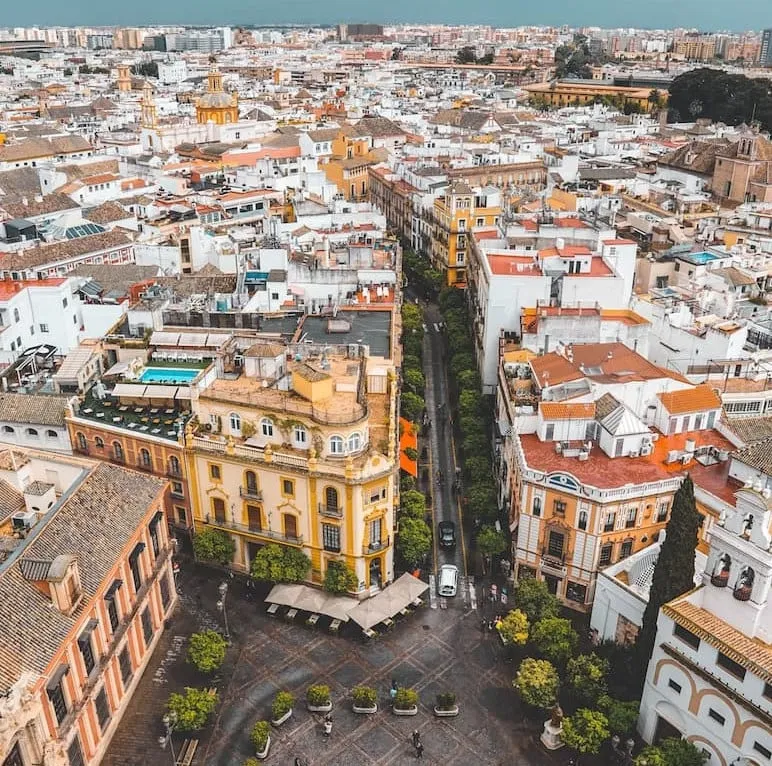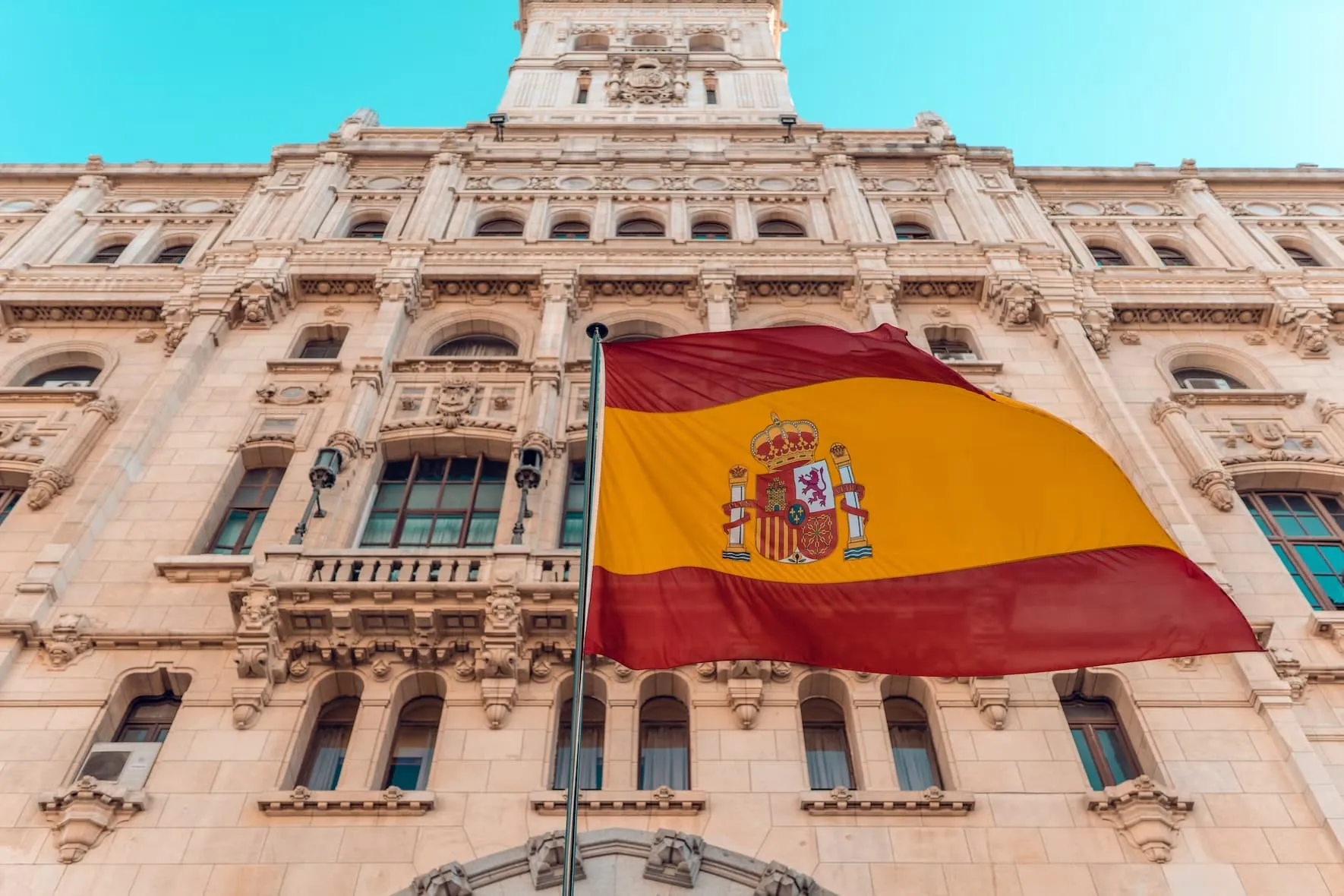Spanish Citizenship: Guide on Obtaining Citizenship in Spain
In order to live in Spain permanently, you need to have Spanish citizenship (or a residence permit). There are a few different ways of obtaining citizenship in Spain and it can be confusing to know which is the most suitable.
Call us on (+44) 333 4149244 to find out more about acquiring Spanish citizenship and sending a high-quality application
Read our 1001 reviews
Request a call back from our immigration experts
Benefits of Choosing IAS‘ Spain Immigration Lawyers
When it comes to obtaining a Spain visa or permit, IAS Spain immigration lawyers are well-equipped to help you.
With IAS’ track record of successfully helping clients visit or immigrate to Ireland successfully, we can help businesses and individuals achieve their goals.
Our dedicated immigration lawyers provide our services through a comprehensive and personalised approach. With IAS, you enjoy:

Expert support from an experienced immigration lawyer dedicated to your success



Support in gathering supporting documents and completing a high-quality application.



Confidence that your case is being handled by an experienced team.



In-house document checks done by lawyers who are accredited by the IBA in Madrid and Seville.
Services we Provide
Overview of Spanish Citizenship (Spanish Nationality)
Spanish citizenship gives individuals the right to live in Spain for as long as they wish. It comes after having permanent residence (with a residence permit) for a minimum period of five years.
People with Spanish nationality are also given the right to freely move and work within the EU, and to vote in Spanish elections.
All people born in Spain do not directly acquire Spanish citizenship. It depends on the nationality of the parents and what the constitution of their country states. If you were not born in Spain, you have a better chance of obtaining citizenship if your spouse is a Spanish national, or you have a child who was born in the country. Learn more about eligibility for obtaining Spanish citizenship by birth here.
If this does not apply to you, the most common route is to apply for a residence permit after five years, then to apply for Spanish nationality after ten years.
There are other routes you can take, and we will discuss these in this article.
How to Obtain Spanish Citizenship – 4 Different Pathways
Citizenship By Marriage
If you are married to someone who is Spanish by origin, you can get citizenship by marriage (unfortunately, civil partnerships do not count). However, you cannot get this status immediately.
First, it is important to check that your marriage is registered in Spain. This will happen automatically if you marry in Spain.
However, for people who marry in a different country, it may be necessary to officially register your marriage in Spain.
Next, you will have to apply for a residence permit and work authorisation.
When you have been living in Spain with your partner for a full year (with your residence permit), you can begin to apply for Spanish citizenship by marriage.
Citizenship By Option
This route to nationality is available to children of a Spanish citizen.
The applicant’s parents do not have to be living in Spain at the time of the application, and there is no requirement that they lived in Spain for a certain period of time.
However, the parents must have been born in Spain.
People who were adopted by Spanish citizens, or who were in the custody of a Spanish citizen, are also able to gain citizenship by option.
This only works if the parent or carers submitted the birth certificate of the child when they were applying for their residence permit.
From that point, the child has the right to request citizenship for 2 years.
Adults cannot get citizenship by option, unless their parents gained residency when they were under 18 years old, and they are now between 18-20 years old.
Citizenship By Descent
It is sometimes possible for you to acquire Spanish nationality if your grandparents were born in Spain. However, there are certain requirements that you need to meet to get Spanish citizenship by descent, which are:
- Having a grandmother who was born in Spain before the 1978 Constitution and was married to a non-Spanish national at the time
- Being the child or grandchild of someone who gained nationality via historical memory, but being ineligible for nationality by option at the time (due to being over 18)
- Having a Spanish national grandparent who left Spain before having children (and therefore could not get Spanish nationality for their children at the time)


Citizenship By Residency
Finally, Spanish citizenship by residency is the best option for people who are not married to a Spanish citizen, and do not have Spanish parents or grandparents.
The main requirement for Spanish citizenship by residency is to have been living in Spain for ten years with Spanish residence.
During this time, you must not have travelled abroad for long periods of time. This is usually defined as more than three months, so short holidays and work trips are allowed.


If you were on a student or tourist visa for any length of time, this will not count towards time spent in Spain as a resident.
When you apply for Spanish nationality by residency, there will be a background check involved.
This means you should not have a criminal record, and any small legal issues (such as speeding tickets) can make it harder for you to get citizenship.
Why Should I Get Spanish Citizenship After Spanish Residency?
You do not have to get Spanish citizenship after being a resident for ten years.
You may want to remain a resident, as there are fewer costs to consider, and you can avoid the complicated process of getting nationality (though you do have to renew your residence permit every five years).
However, some foreigners feel as though they can better immerse themselves in the Spanish way of life when they are a citizen, as they have the same rights as people born in Spain, such as the right to vote.
Essentially, foreigners with citizenship have the same status as citizens who have been living in the country for their whole life, are married to a Spanish citizen, and are experts in the Spanish language and culture.
Another benefit is that there are no travel restrictions, whereas you will be told to avoid long-term travel when you have Spanish residency.
Finally, if you are hoping to have children in Spain, being a citizen will give your children the right to Spanish nationality and residency.
This is not necessary if your partner is a Spanish citizen, but if you are marrying a non-Spaniard, having citizenship could establish security for your children as citizens of Spain.


Spanish Dual Citizenship
If you want to become a Spanish citizen, you can apply for citizenship in Spain, but you must be willing to renounce your current nationality in favour of Spanish nationality.
The exceptions are if you are a Sephardic Jew, or your home country is Spanish-American.
Some examples of countries that do not exempt you from Spanish dual citizenship status are:


- The Philippines
- Andorra
- Portugal
- Equatorial Guinea
- Cuba
- Peru
- Honduras
- Mexico
- France
- Uruguay
When Can I Apply for Citizenship in Spain?
When you can apply for citizenship depends on your chosen pathway.
The quickest routes to citizenship are through birth or descent, where you are able to prove some familial link to Spanish relatives. If you are eligible for these pathways, you will be able to apply from citizenship immediately.
If you’re not eligible for these routes, the next quickest route is citizenship by marriage. Under this pathway, you will be able to apply for citizenship once you have lived in Spain with your spouse for once year from when you receive your residence permit.
Lastly, if you wish to become a Spanish citizen by naturalisation, you will generally only be able to apply for citizenship after 10 years of qualifying residence in Spain. However, this can be shortened to 5 years if you are a refugee, or 2 years if you’re from a qualifying Latin American country, Andorra, the Philippines, Equatorial Guinea, Portugal or you’re of Sephardic origin.
How to Apply for Spanish Citizenship?
Once you have researched the routes to Spanish nationality and chosen one that suits you, you will need to fill out a Spanish citizenship application form and take it to the Civil Registry Office in your area.
Alternatively, you can get involved with the application procedure online. You will answer the same questions, but you simply input the information digitally instead of on paper.
The Spanish Ministry of Justice has a tool that allows you to check on your application that you have made, at the time of submission and at any point after that. This can be useful for people who need their application to be approved quickly.
Whichever route you take, you will also need supporting documents including:
- Marriage certificate
- Proof of payment of the application fee
- Spanish language certificate
- Empadronamiento (resident register)
- Valid passport
- Evidence of working history in Spain
- Proof of finances
- Background records from your country of origin


Spanish Citizenship Requirements
The general requirements for Spanish citizenship will vary based on your chosen route. However, generally speaking, the following are the most important requirements that you may have to fulfil when applying for citizenship, depending on your route (note that you may only have to fulfil one or two of these requirements):
- Prove a familial link to Spanish relatives, such as your parents, grandparents or adoptive parents
- Prove that you have been living in Spain for a minimum required period of time
- Show a valid marriage certificate to a Spanish national
- Pass the CCSE (Constitutional and Sociocultural Aspects of Spain) and DELE (Diploma of Spanish) exams
It is important to check your chosen route to citizenship carefully and ensure that you have met all of the requirements in order to allow yourself a good chance of having your application approved.
What are the Benefits of Spanish Citizenship?
If you live in Spain, there are many benefits of getting Spanish citizenship.
One advantage is that you have the same right to live in the country as someone who was born there, so you don’t have to worry about being deported for being out of the country for a long time, or breaking the law.
Another benefit is that it is much easier to work and study in Spain when you have Spanish nationality. Unlike residency, you do not have to keep renewing your citizenship, so you can focus on building a life in Spain without needing to deal with administration every few years.
When you get Spanish citizenship, you become a member of the Schengen region. This is an area without internal border controls, which means you can travel between different European countries without going through border control.
There are 26 countries in the Schengen area, including Spain, Italy, Greece, France, Finland, and Sweden.
If you are not from a country that is a member of the EU, obtaining Spanish citizenship will allow you to appreciate the benefits of the EU.
This includes having access to universal healthcare in all EU countries, being able to work in any EU country, and not being double taxed in your home country and your host country.
Finally, the Spanish passport has a reputation for being particularly powerful. This is because it allows access to so many other countries, making it easier for people to live and work all across Europe with a Spanish passport.
What are the Drawbacks of Spanish Citizenship?
One drawback of getting Spanish citizenship is the fact that it costs money.
Not everyone can afford to pay the various fees included in the Spanish nationality application process, and some people would rather spend their money on other things that they deem more important.
Another potential drawback is the fact that it is very difficult to have dual citizenship when you apply for Spanish citizenship.
It is not easy for people to decide to renounce their current citizenship, and this can be quite an emotional thing to do. Some people would prefer to get a passport in a country that allows dual nationality.
It could be argued that Spanish residency allows you to integrate into Spain just as well as citizenship, as you can still live and work in the country, as long as you renew your residence permit every five years.
Though you are not able to vote, this is not a problem for some people, so Spanish nationality does not appeal to them.
Finally, the process of getting citizenship can be stressful. It isn’t always easy to find the information you want, and this can make it difficult to fill out a convincing application.
It also requires plenty of patience, as you may have to wait two years before you are considered a Spanish citizen.
How to Get Spanish Citizenship Quickly
Overview
There is never a guarantee that you will be able to get Spanish nationality in less than 1-2 years, as the process is dependent on many different factors.
However, there are some things you can do to increase the likelihood that your application is approved quickly:
Check your application for errors
This includes checking your basic contact details and your supporting documents. If you have made a mistake in your documents, your application could be delayed. In some cases, it may even be rejected.
Make sure all of your documents are translated into Spanish
This is advisable to avoid unnecessary delays. It will cost money, but it is obligatory to pay for translation when you pursue the application process.
If you are fluent in Spanish, you are permitted to translate the documents yourself. However, we recommend hiring a professional translator with knowledge of the Spanish nationality process. This reduces the chance that there will be language errors on your application form.
Apply for Spanish citizenship online rather than in-person
If you do not feel comfortable with this, you could ask a family member to help you. It is usually much faster to fill out your information online rather than physically.
While the general wait time for Spanish nationality is 1-2 years, when you submit an online application, the average wait is just one year. This is why we always recommend online applications if you need to get your citizenship in the near future.
Find a lawyer
It is best to find a lawyer with an understanding of the Spanish citizenship process to help you with your application.
They will have filled out many Spanish citizenship applications, so they can get started immediately and notify you of anything they believe may delay your application.
It will cost money to hire a lawyer, but they could end up saving you money as they will check your application for errors. They will also save you plenty of time, as they can take charge of the majority of the application process.
How Can IAS Help?
The team of expert lawyers at IAS can help you to understand the Spanish nationality rules better, as well as explaining where you can find the application form, and the information you need to fill it out.
Get in touch with us on (+44) 333 4149244 if you would like to know more about the process of becoming a Spanish national, either through marriage, residency, descent, or option. If you are not eligible for citizenship, we will advise you on what your next steps could be in our consultation.
Table of Contents
Table of Contents will appear here.Legal Disclaimer
The information provided is for general informational purposes only and does not constitute legal advice. While we make every effort to ensure accuracy, the law may change, and the information may not reflect the most current legal developments. No warranty is given regarding the accuracy or completeness of the information, and we do not accept liability in such cases. We recommend consulting with a qualified lawyer at Immigration Advice Service before making any decisions based on the content provided.
Frequently Asked Questions
If you have only just got Spanish residency, you will need to wait ten years before you are eligible to apply for citizenship.
Once you feel ready to apply, from submitting your request to being granted citizenship, the process takes around 1-2 years
It costs €104.05 for the Spanish nationality application itself. There is a fee of €300 for getting a Spanish passport, which will be charged towards the end of your application. Finally, you will also have to pay between €60-100 for the translation of your documents.
There are other indirect costs to consider. For example, citizens through marriage will have to factor in the cost of marriage and the cost of a residence permit (€10.94 plus €16.40 for each renewal) and a work visa (€60-160).
If you do not have any Spanish language qualifications, you will need to pay for a Spanish language course, and for the exams that are required to gain a Spanish language certificate.
Yes, you will have to prove that you are familiar with the Spanish language and culture in order to obtain Spanish nationality. There are two exams that foreigners need to take, called the CCSE and the DELE A2.
The CCSE is the shorter test, consisting of 25 multiple-choice and true or false questions.
The questions are focused on Spanish culture, including politics, geography, history, and society. The test lasts 45 minutes and the minimum pass mark is 60%.
The DELE A2 is focused on the Spanish language, rather than culture. It has sections for written language, reading comprehension, listening comprehension, and spoken language.
You can apply for both the CCSE and the DELE A2 at a Cervantes Institute near you.
Most people applying for Spanish nationality will need to take both of these exams. However, you are exempt from the DELE A2 if you can prove that your Spanish language level is higher than A2, or if you come from a Latin American country.
You can avoid the CCSE if you have studied in the Spanish education system, meaning you have Spanish qualifications e.g., the Bachillerato or ESO.
Some reasons for Spanish citizenship requests being rejected are:
- You have not lived in Spain with a residence permit for ten years
- You do not have Spanish parents or grandparents
- You are not married to a Spanish person
- You have a criminal record
- You have had a civil partnership with a Spanish national, instead of a marriage
- You spent long amounts of time abroad during your residency period
- Your documents are untranslated, or translated poorly
- You did not pay the appropriate fees for citizenship
Spanish citizenship lasts forever.
However, you can apply for nationality in another country whenever you wish. If you choose to do this, you are voluntarily renouncing your status as a Spanish citizen.
The only exception to this is applying for nationality in a country that is on the Spanish list of acceptable double citizenship.


What our clients are saying
How our UK Immigration Lawyers can help
At the Immigration Advice Service our lawyers specialise in a wide range of UK visas, nationality and asylum applications and have represented clients in various successful complex and high-profile cases.















